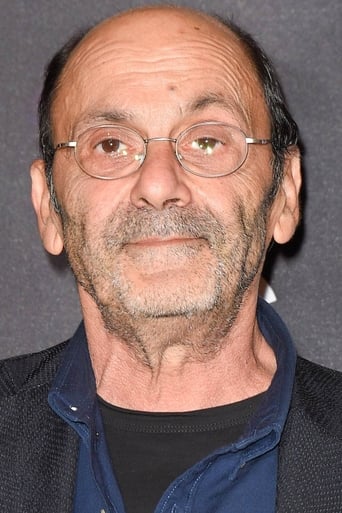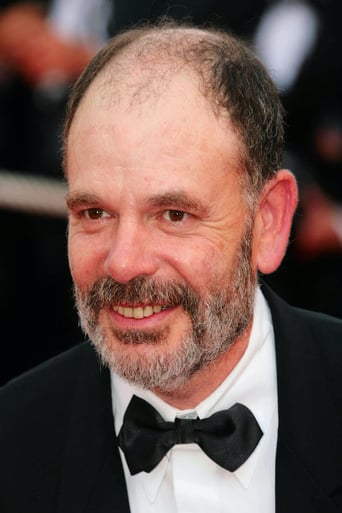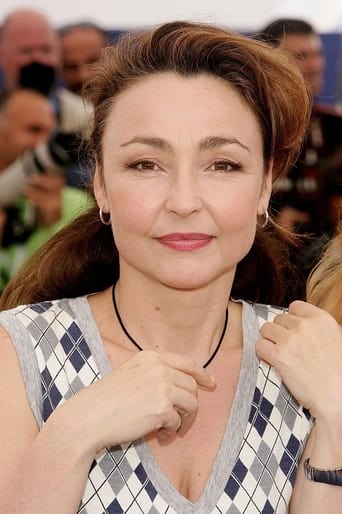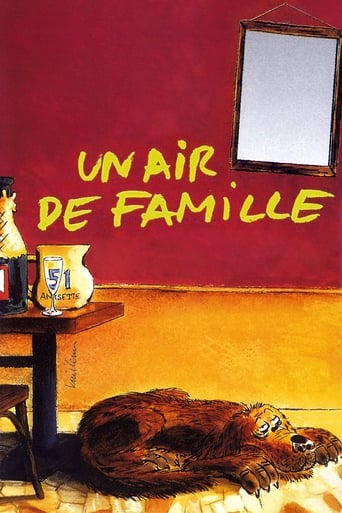
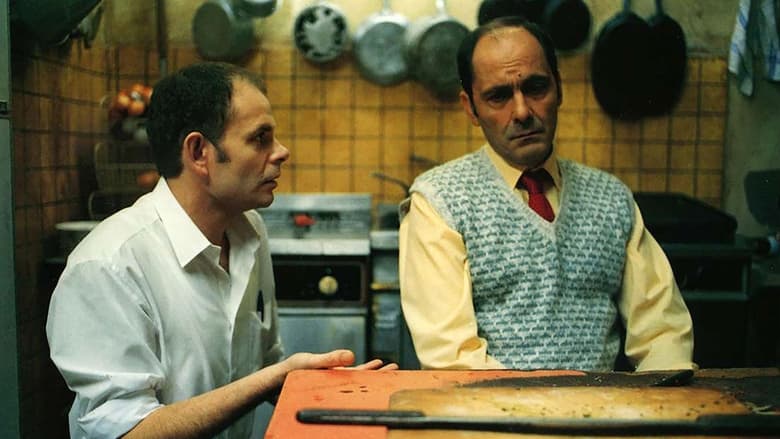
Family Resemblances (1996)
An upper middle-class French family celebrates a birthday in a restaurant. In one evening and during one meal, family history, tensions, collective and separate grudges, delights, and memories both clash and coalesce.
Watch Trailer
Cast


Reviews
This movie is the proof that the world is becoming a sick and dumb place
Best movie ever!
A brilliant film that helped define a genre
Although I seem to have had higher expectations than I thought, the movie is super entertaining.
Henri, the owner of the cafe 'Le pere tranquile' is facing a tough time. His wife, Arlette, has walked out on him. To make it worst, his family will be stopping by to pick him up to go to a nearby restaurant where, his sister-in-law Yoyo, is going to celebrate her birthday. It is closing time at the cafe, but Denis, the only employee, is cleaning up. Betty, Henri's sister, who evidently likes the barman, comes by to wait for the rest.The three missing members of the family arrive. Philippe, the other brother, has been interviewed on television about his views on financial matters. He is an insecure individual who is the most successful of the three siblings. He comes accompanied by his domineering mother, and Yoyo his wife, the birthday girl. It becomes apparent that Philippe is the one the mother considered worthy of success, while Betty and Henri have not amounted to anything, in her mind.The atmosphere of the cafe is charged. Dinner plans are abandoned when Henri's secret is known. While it does not come as a surprise, no one is really sorry for Henri. A small birthday cake is produced for Yoyo to cut and the singing of the 'happy birthday' is sung, but she is not too pleased with the celebration, or the ridiculous gifts Philippe and the mother-in-law have for her. Cedric Klapisch, a director with a keen insight on people facing crises, directed the comedy which is based on a play by two of the stars of the film, Anne Jaoui and Jean-Pierre Bacri. There was no attempt from Mr. Klapisch to hide the fact this is strictly a filmed play done in a one set, pretty much as it was the case in the theater when it was first seen. A family in turmoil is not exactly a groundbreaking plot for a movie, but to his credit, the director keeps things moving well, something that with another vision it would have resulted in a dull film. We saw the film when it first opened, but watching it for a second time, it puts things in perspective and found it more enjoyable.It is clear the three brothers have gone in separate directions. The only one that has something to show in the way of achievements is Philippe, who shows he is such an insecure man, one wonders what made him rise in the corporate world. Henri was the son that stayed behind to run the family business. After fifteen years of marriage he finds now abandoned by his wife because of differences. Betty is a free spirit who wants nothing to do with success; she is only interested in the present, and that is what she is doing by getting involved with Denis. Yoyo, the wife celebrating her birthday is a woman totally dominated by Philippe. The mother shows no tenderness for anyone. All this is in sharp contrast with the loving family one gets to see in flashbacks.The comedy is an ensemble piece where the cast gets to shine, but no one is singled out. Jean-Pierre Darroussin is Denis, the outsider who knows quite a lot about the family. Jean-Pierre Bacri plays the dejected Henri. Agnes Jaoui has some good moments as Betty. Catherine Frot continues to show why she is one of the best actresses working today. She does a terrific dance with M. Darroussin. Vladimir Yordanoff makes a hysterical and insecure Philippe. Claire Maurier is the mother. The director appears as the father in the flashback sequences.
If your idea of entertainment is watching family members yell at each other, offer bitter sarcasm, and make each other feel bad about themselves, this is the movie for you! My French teacher told me this was one of his favorite films, so I ordered it from France in the European version. I was very disappointed. Granted, my French isn't perfect, but I understood most of it and still thought it wasn't very funny. In fact, it made me uncomfortable, and very little struck me as funny or entertaining. I guess the French have a different sense of humor. Because the screen play was adapted from a play, almost all of the story takes place inside of a bar, and this takes some of the potential entertainment value away. There isn't much of a plot--I kept waiting for something to happen, but it never did.
The IMDb summary reads: "An upper middle-class French family celebrates a birthday in a restaurant. In one evening and during one meal, family history, tensions, collective and separate grudges, delights, and memories both clash and coalesce." Well, that's right but "upper-class" could be misleading. Upper middle-class, maybe. One brother is an executive, number 4 in a Silicon Valley type firm, but the other runs the bar -- it's more a bar than a restaurant, from what we see -- and it's no great success, more a sign of Henri's lack of ambition (that's Jean-Pierre Bacri) and the sister (Agnès Jaoui) works as an underling at the firm, and her boyfriend is the barman and she seems totally without ambition even to marry, at 30. The exec's wife is a rather ditsy blonde lady. One gets the impression that the family is somewhat going to seed. Henri's wife has just left him, Betty can't commit to anything, Philippe's totally insecure, their mom is a pain... This was a play written by Jaoui and Bacri and is full of their delicious dry humor, pettiness and grumpiness and keen social and psychological observation. I found it very funny but at the same time a bit depressing and somewhat static, since it's a play. To underline the static quality, one of the "charicters" is Caruso, a paralyzed dog. It doesn't "open up" as the 2000 Le goût des autres/The Taste of Others and the 2004 Comme une image/Look at Me do; on the other hand, the focus on personalities is even more precise. The "air" is bad air, but things don't end on a too unhappy note in this gentle, ironic comedy. Now that I'm following French dialogue more carefully, I enjoyed this a lot, including the social nuances I could catch about who gets called "tu" and who gets called "vous" and when. Klapisch keeps the camera moving but unobtrusive, adding a childhood flashback perhaps once too often, framing the story with a street panorama and a warm musical theme. To call Bacri "grumpy" may be redundant. I'm not sure what led Klapisch (who from L'Auberge espagnole seems to have a more lighthearted outlook himself) to direct this, and for Jaoui to start directing her writing with Bacri afterwards with Taste of Others and Look at Me.The DVD by Fox Lorber is of unusually poor quality. You can't turn the subtitles on and off, and they came out half below the screen. There are virtually no extras.
Far too easy. From its not very subtle title (meaning the appearance of being a family), this film sets out its stall as a family-as-social-microcosm-style melodrama of the Nicholas Ray school. The material was originally a play, and its cramped theatrical origins suit the film's theme - the breakdown and paralysis of the family.The action takes place in a family cafe - Au Pere Tranquille (here the father is dead - does the film lament the passing of patriarchy, tradition, order? These characters seem like squawking, entropic puppets who have lost their master). The decor of this family home/business is oppressive, dank, hostile (actively so - at one point the mother is injured); characters are continually framed to show their entrapment, and compared to trapped animals - a paralysed dog, a dying fly, tanked fish. Escape and epiphany are tantalisingly evoked only to be cruelly yanked away. Everyone is a failure/loser, even the seemingly prosperous. Bunuel's ghost hovers in the tale of a group of diners who cannot escape their surroundings. Crucially, these characters inhabit a class limbo - that dangerous extremist hunting-ground between lower and middle - that seems to account for their identity crises. Both 'happy' endings are heavily undermined. Everything happens exactly as you'd expect.If ever a film showed the supremacy of the director over the writer in the cinema, it is this one. Alain Resnais used a play by the same writer/actors to create a quicksilver masterpiece, On Connait La Chanson, which was graceful, hilarious, moving, patterned, directed with the lightest of touches, yet profoundly sad and aware of the encroachment of time and death. This film is unworthy of the masters it alludes to: it is flatly directed, without insight; the dialogue (in translation, at any rate) is frequently banal; the characters are often hard to make out in the murky mise-en-scene, or are mere hectoring stereotypes, making redundant the so-called character study. Too many French films recently are working over this same old tired ground with increasingly little result. La Haine was supposed to have blown them all away.(The subtitles are appalling, often unreadable).


